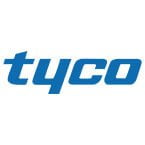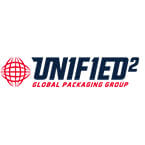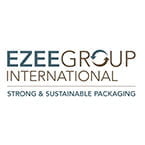Table of Contents
Packaging waste is a major problem in Europe, with millions of tons of packaging being produced and discarded each year. This waste not only contributes to pollution and litter but also puts a strain on resources and energy. To address this issue, Europe must set the bar high on packaging reuse systems to curb waste and support a more sustainable future.
Benefits of Reusable Packaging Systems
Waste Reduction
The fundamental advantage of reusable packaging systems lies in their ability to drastically diminish the amount of packaging waste generated. Unlike their single-use counterparts, which contribute to the mounting issue of overflowing landfills, reusable packaging endures through multiple usage cycles, significantly reducing the need for constant replacement.
In the contemporary landscape of environmental awareness, the pivotal shift towards reusable packaging systems stands out as a transformative strategy for combating the burgeoning crisis of packaging waste. At the heart of this revolution lies a fundamental advantage—the remarkable ability to substantially curtail the generation of packaging waste. This advantage is in stark contrast to the prevalent single-use counterparts that, in contributing to overflowing landfills, epitomise the unsustainability of a linear economy.
Resource Conservation
The adoption of reusable packaging translates to a decreased demand for raw materials. Single-use packaging necessitates continuous production, consuming significant natural resources. In contrast, the durable nature of reusable packaging lessens the frequency of production, aligning with the principles of a circular economy focused on resource conservation.
Energy Efficiency
Continuous production of packaging materials involves substantial energy consumption. By opting for reusable packaging, the demand for constant manufacturing decreases, resulting in lower overall energy consumption. This energy efficiency aspect contributes to the broader goal of sustainable resource management.
Economic Savings
While there might be initial investments in creating durable and effective reusable packaging, the long-term economic benefits are considerable. Businesses stand to gain from reduced expenditures on packaging materials, waste disposal, and the environmental impact associated with constant production.
The Role of Europe in Promoting Reusable Packaging Systems
Setting High Standards
To bolster the widespread adoption of reusable packaging systems, Europe must establish rigorous standards. These standards should encompass the materials used, ensuring they are environmentally friendly and recyclable. Moreover, criteria for the durability and ease of use of the packaging should be defined to guarantee high-quality products that meet both consumer and business requirements.
Policy Implementation
Beyond setting standards, effective policies are essential to incentivise businesses to transition to reusable packaging systems. Europe can introduce financial incentives, tax breaks, or subsidies for companies adopting sustainable practices. Concurrently, education programs should be implemented to enlighten consumers about the advantages of reusable packaging, fostering a mindset shift toward sustainability.
Research and Innovation
Continuous research and innovation are vital to improving the design, functionality, and environmental impact of reusable packaging systems. Europe should invest in research initiatives that focus on enhancing the recyclability, biodegradability, and overall sustainability of these systems.
Conclusion: Paving the Way to a Sustainable Future
Europe, by setting high standards and implementing supportive policies, can spearhead the reduction of packaging waste and lay the groundwork for a more sustainable future. The embrace of reusable packaging systems represents a crucial stride toward waste reduction, and Europe's proactive approach can inspire global initiatives to address the pressing challenges of our time. The integration of these systems not only aligns with environmental conservation but also signals a commitment to responsible and forward-thinking practices in the packaging industry.


















